Learn about Siberian husky facts and info to provide proper care for your husky dog.
| Life Expectancy | 12-14 years |
|---|---|
| Height (Male) | 21-23.5 inches (53-60 cm) |
| Height (Female) | 20-22 inches (51-56 cm) |
| Weight (Male) | 45-60 pounds (20-27 kg) |
| Weight (Female) | 35-50 pounds (16-23 kg) |
| Coat Type | Double coated, medium length |
| Characteristic Colors | Black, gray, red, and agouti; all with white |
| Eye Color | Blue, brown, amber, or any combination thereof |
| Temperament | Friendly, gentle, dignified; alert but not aggressive |
| Exercise Needs | High; requires vigorous exercise |
| Trainability | Intelligent but can be independent and willful |
| Bred for | Pulling sleds over long distances |
| Common Health Issues | Hip dysplasia, cataracts, and corneal dystrophy |
| Grooming Needs | High; frequent brushing required |
| Original Use | Sled pulling across Siberia and Alaska |
| AKC Breed Recognition | 1930 |
Siberian husky facts and info reveal that these dogs possess distinctive physical characteristics. Their coat colors come in a wide range, including variations of black, gray, red, and agouti, often with striking patterns and markings.
The Siberian husky’s eyes can be captivating, as they can exhibit a variety of colors, and it’s not uncommon for them to have heterochromia, where each eye is a different color. This breed is known for its medium-sized build, combining strength, agility, and endurance, which reflects their history as sled dogs in harsh Arctic conditions.
Siberian husky facts and info
It’s fascinating to note that Siberian Huskies have a double coat that insulates them against extremely cold temperatures.
The undercoat is dense and soft, while the outer coat is straight and quite harsh in texture, providing effective weather resistance. Additionally, their ears are well-furred and stand erect, contributing to their alert and keen expression.
To explore the captivating world of the Togo Siberian Husky and gather insights on providing the best care for these magnificent dogs, visit "Optimal Care Tips for the Togo Siberian Husky Breed". Dive into a comprehensive guide that's dedicated to helping you understand and meet the unique needs of this resilient and enduring breed.
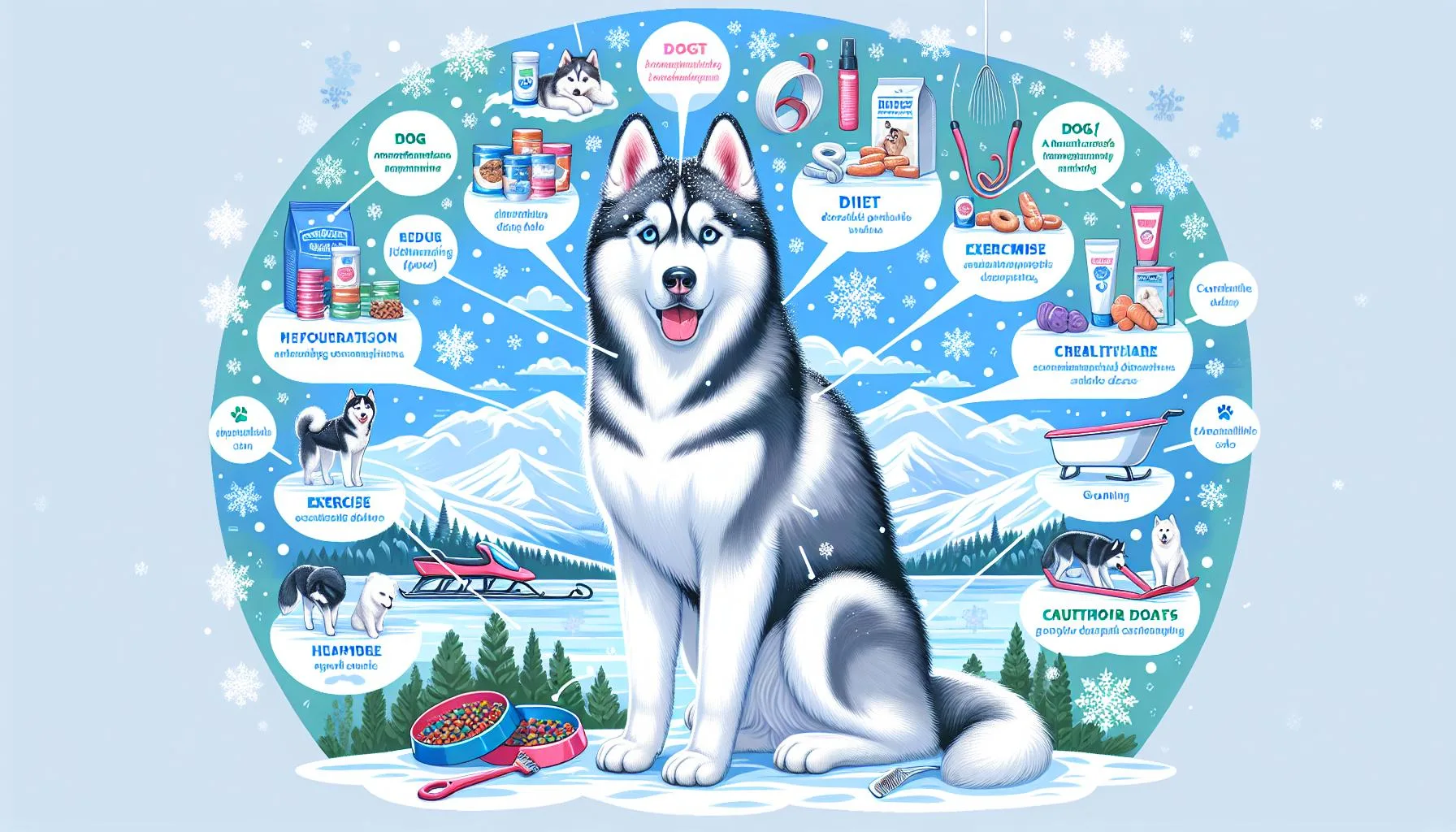
Temperament and Personality
Siberian husky facts and info
Siberian Husky’s temperament and personality are characterized by their remarkable intelligence, independence, and social nature. These dogs are known for their astute problem-solving abilities and quick learning, making them adept at various activities and commands.
Their independent streak is a prominent trait, which can manifest as a desire to explore and a degree of stubbornness, requiring patient and consistent training methods. Despite their independent nature, Siberian Huskies are inherently social animals, often forming strong bonds with their human companions and showing affability towards other dogs.
Their friendly and outgoing demeanor makes them excellent family pets, as they enjoy the company of both familiar faces and newcomers. The combination of intelligence, independence, and sociability makes the Siberian Husky a distinctive and captivating breed to care for..
To explore the exuberant personality traits and dynamic behaviors that define Alaskan Huskies, delve into our detailed article. Discover how their joyful nature can uplift and add adventure to your life by visiting "Alaskan Husky Personality: Unleashing Their Joyful Spirit!".

Exercise Requirements
Siberian Husky Facts and Info:Siberian Huskies are an energetic breed known for their high exercise needs. It’s essential to recognize that these dogs have been bred for endurance and stamina, and as such, they require a significant amount of physical activity to keep them healthy and content.
Daily exercise is crucial for their overall well-being and mental stimulation. Without adequate exercise, Siberian Huskies may become bored and exhibit destructive behaviors.
Therefore, taking them for long walks, runs, or engaging them in challenging activities such as agility training can help fulfill their exercise requirements. It’s important for potential owners to commit to meeting these needs to ensure that their Siberian Huskies lead happy and fulfilling lives.
Siberian husky facts and info
Additionally, providing them with interactive toys and engaging in activities such as fetch or obedience training can also help meet their exercise needs.
A lack of physical activity can lead to obesity and potential health problems, so regular exercise should be a top priority for Siberian Husky owners.
To ensure your Siberian Husky thrives, access comprehensive advice on channeling their energy into positive habits. Discover the secrets to successful potty training with our detailed guide on nurturing your husky puppy's early development.
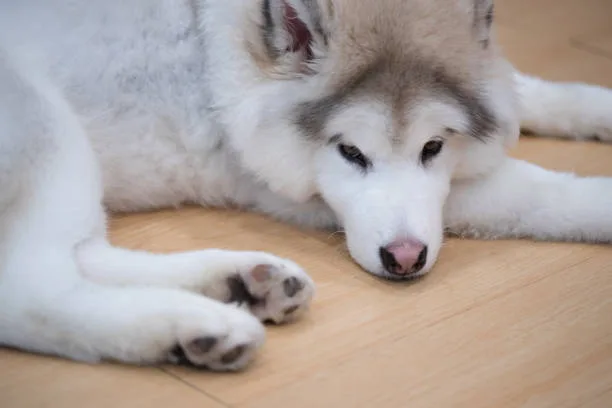
Training and Socialization
Siberian husky facts and info indicate that early training and socialization play a crucial role in shaping the behavior of these intelligent and independent dogs. Proper training not only prevents behavioral issues but also fosters a strong bond between the husky and its owner.
Socialization from an early age helps Siberian Huskies become well-adjusted and friendly around people and other animals. It’s essential to expose them to various experiences, sights, sounds, and smells to ensure they grow into well-behaved pets.
Consistency, positive reinforcement, and patience are key elements in training Siberian Huskies due to their strong-willed nature. Additionally, early socialization with people and other dogs helps in preventing potential aggression or anxiety issues in adulthood.
Overall, early training and socialization are essential for Siberian Huskies to develop into obedient, well-behaved companions and to prevent behavioral problems later in life.
Siberian husky facts and info emphasize the importance of early training and socialization in shaping their behavior and ensuring a strong bond with their owners.
Proper socialization from an early age is crucial for Siberian Huskies to become well-adjusted and friendly pets around people and other animals.
Consistency, positive reinforcement, and patience are key elements in effectively training Siberian Huskies due to their strong-willed nature.
Early socialization with people and other dogs is essential in preventing potential aggression or anxiety issues as they mature into adulthood.
Overall, early training and socialization are essential for Siberian Huskies to develop into obedient, well-behaved companions and to prevent behavioral problems later in life.
Understanding the nuances of early training and socialization is just the beginning of providing the best care for your Siberian Husky. To further enhance your husky's comfort and well-being, learn about selecting the ideal crate size and the types available to create a safe haven for your pet.
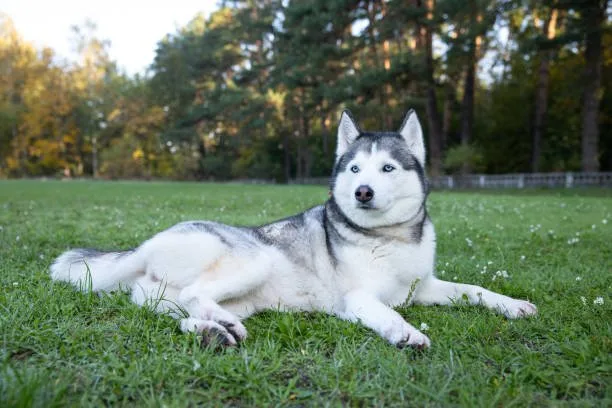
Grooming Needs
Siberian Huskies are known for their thick double coats, consisting of a dense undercoat and a longer outer coat. Regular grooming is essential to maintain their coat and overall health.
Brushing your Siberian Husky’s coat at least once a week helps manage shedding by removing loose fur and preventing mats from forming. Using a deshedding tool or slicker brush can be particularly effective in keeping their coat healthy and reducing the amount of loose hair around your home.
Additionally, during the shedding seasons in spring and fall, more frequent brushing will be necessary to manage the increased hair loss during these times. In addition to brushing, regular bathing with a gentle dog shampoo helps keep the coat clean and prevents buildup of dirt and oils.
It’s important to trim your Husky’s nails regularly to prevent overgrowth and splitting, as well as to check their ears for any signs of infection and to clean them as needed. Lastly, dental care is often overlooked but critical for their overall health, so consider regular teeth brushing and providing dental chews as part of their grooming routine.
Regular grooming not only keeps your Siberian Husky looking and feeling their best but also helps in preventing skin issues and maintaining their overall well-being.
Remember to groom your Siberian Husky’s coat at least once a week to manage shedding and prevent mats.
Use deshedding tools and slicker brushes, especially during shedding seasons, to reduce loose hair.
Bathe your Husky regularly with a gentle dog shampoo and trim their nails to prevent overgrowth.
Check their ears for infection and clean them as needed, and incorporate dental care into their grooming routine for overall health.
For a deeper dive into the fascinating world of these robust canines, including their history, temperament, and additional care tips, explore our comprehensive guide. Unveil the full spectrum of Siberian Husky knowledge by visiting Siberian Husky Facts and Insights.
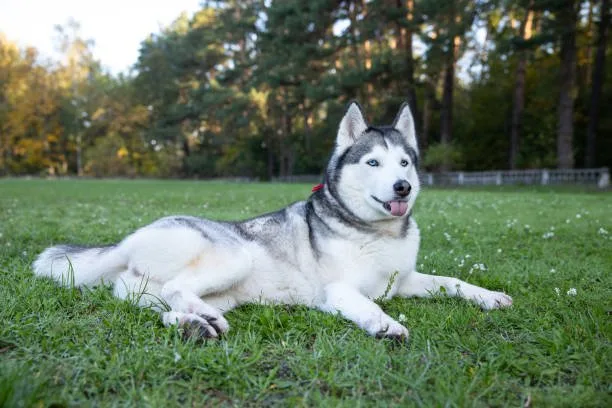
Dietary Considerations
Siberian husky facts and info: Siberian Huskies have specific dietary needs that should be carefully considered to ensure their health and well-being. Their diet should consist of a balanced combination of nutrients, including proteins, fats, and carbohydrates, tailored to their high energy levels and active lifestyle.
Portion control is crucial to prevent obesity, especially considering their tendency to overeat if given the opportunity. Additionally, it’s important to address the varying dietary requirements of puppies, adult Siberian Huskies, and senior dogs, as their nutritional needs evolve throughout different life stages.
When it comes to feeding a Siberian Husky, owners should prioritize high-quality ingredients to support their overall health and promote a shiny coat and strong muscles.
A diet rich in lean proteins from sources like chicken, fish, and turkey can help sustain their energy levels and muscle development.
- Protein-rich diet to support their high energy levels and muscle development
- Moderate amount of high-quality fats and carbohydrates for sustained energy
- Portion control to prevent overeating and obesity
- Adapted dietary considerations for puppies, adult dogs, and seniors
Reddit Siberian husky facts and info
Consideration should also be given to the appropriate balance of fats and carbohydrates in their diet to ensure sustained energy throughout the day. It’s crucial to consult with a veterinarian to establish a suitable feeding plan tailored to the specific needs of the individual Siberian Husky, taking into account factors such as activity level, age, and overall health.
For a comprehensive guide on optimizing your Siberian Husky's diet, dive into our detailed article that outlines the best strategies for meal planning. Unearth the secrets to a healthy and happy Husky by exploring "The Optimal Diet for Your Siberian Companion" now.
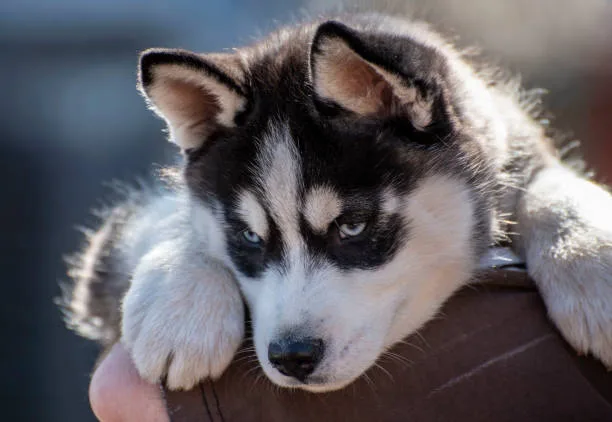
Health Issues and Lifespan
Siberian Huskies are generally a healthy breed, but like all dogs, they are prone to certain health issues. One of the most common health problems in Siberian Huskies is hip dysplasia, a genetic condition that can lead to mobility issues and arthritis.
Additionally, they may also be affected by eye conditions such as cataracts and progressive retinal atrophy. It’s crucial for husky owners to be aware of these potential health issues and to schedule regular veterinary check-ups to monitor their dog’s overall health.
With proper care and attention, Siberian Huskies have a lifespan of 12 to 14 years, making them a long-term commitment for potential owners.
American Kennel Club: Siberian husky facts and info
Siberian husky facts and info:
- Hip dysplasia is a common health issue in Siberian Huskies, affecting their mobility and causing arthritis.
- Eye conditions like cataracts and progressive retinal atrophy can also be a concern for the breed.
- Regular veterinary check-ups are essential for monitoring the overall health and well-being of Siberian Huskies.
- These dogs have a lifespan of 12 to 14 years, emphasizing the long-term commitment required from potential owners.
.
Delving deeper into the care of these spirited canines is crucial for their well-being. For insights on nurturing a thriving husky from puppyhood, explore our comprehensive guide on raising a happy husky in your living space.

Weather Adaptation
Siberian husky facts and info indicate that these dogs are well adapted to cold climates, thanks to their thick double coats, which provide insulation against extreme cold. Their coat also serves as a protective barrier, shielding them from harsh weather conditions.
When in warmer environments, it’s crucial to take precautions such as providing ample shade and ensuring access to fresh water to prevent overheating. Limiting outdoor activities to cooler parts of the day can help prevent heat-related issues.
Additionally, regular grooming to remove loose fur can aid in temperature regulation and keep them comfortable. It’s important to be mindful of their comfort regardless of the weather, making adjustments to their living conditions as needed to ensure their well-being.
On Quora about: Siberian husky facts and info
Overall, Siberian Huskies have a remarkable ability to adapt to various weather conditions, but it’s essential for owners to monitor their environment and take steps to keep them comfortable, whether it be in cold or warm climates.
To delve deeper into the remarkable capabilities of the Siberian Husky, explore our detailed article on their endurance and athleticism. Discover the surprising distances these resilient dogs can cover in this insightful piece on husky stamina.
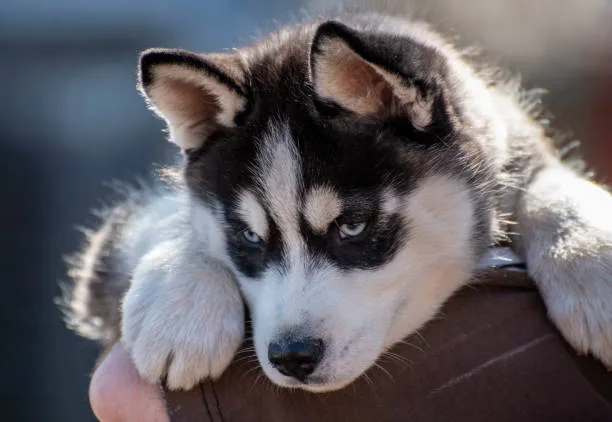
Siberian Husky vs. Similar Breeds
Siberian husky facts and info reveal some key differences that set them apart from similar breeds. Unlike Alaskan Malamutes, which are larger and more powerful, Siberian Huskies are medium-sized and known for their endurance and speed.
This makes them better suited for owners who are active and enjoy outdoor activities like running and hiking. In contrast to the Samoyed, which has a dense, fluffy coat, Siberian Huskies have a shorter, double-layered coat that requires less grooming.
This makes them a more suitable choice for owners who prefer a lower maintenance grooming routine. Additionally, compared to the Alaskan Husky, which is a working dog bred for sled-pulling, Siberian Huskies have a more sociable and friendly nature, making them excellent family pets.
These differences make Siberian Huskies a unique and appealing choice for potential owners looking for a versatile and sociable canine companion.
Siberian husky facts and info also highlight their differences from the similar breeds, such as Alaskan Malamutes, Samoyeds, and Alaskan Huskies.
Understanding these distinctions can help potential owners make an informed decision when choosing a dog that best fits their lifestyle and preferences.
If you find the distinctive traits of a Siberian Husky appealing, understanding their unique needs is equally essential. Delve deeper into their behavior with our article, "Understanding Your Husky's Frequent Urination: Tips for Support", to ensure a healthy and happy relationship with your pet.
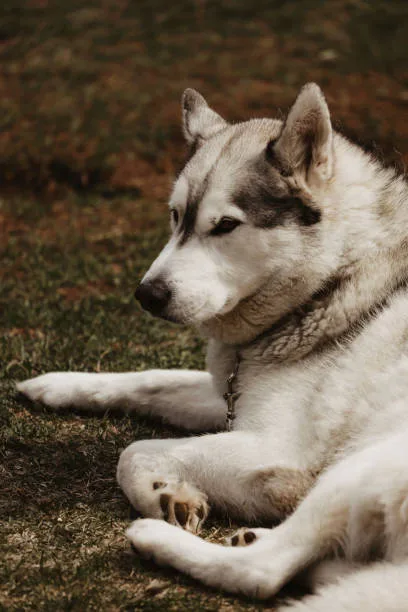
Behavioral Traits and Training Challenges
Siberian Husky facts and info reveal that they possess inherent behavioral traits that can pose training challenges for their owners. Due to their strong prey drive, they may exhibit a tendency to chase smaller animals, making off-leash activities risky.
Additionally, their independent and stubborn nature can result in resistance to obedience training. Therefore, it is crucial to establish firm and consistent leadership from the early stages of a Siberian Husky’s life to effectively manage these behavioral traits.
Providing mental stimulation and engaging activities can help channel their energy in positive ways, ultimately contributing to a well-behaved and obedient companion.
The capability of Siberian Huskies to form strong bonds with their owners can be advantageous in training. However, understanding and addressing their natural instincts is essential for successful training and a harmonious relationship.
To explore in-depth strategies for effectively training a Siberian Husky and overcoming breed-specific challenges, visit the American Kennel Club. Should your interests lie in understanding other animals, the AKC provides rich resources on a wide array of creatures worthy of your attention.
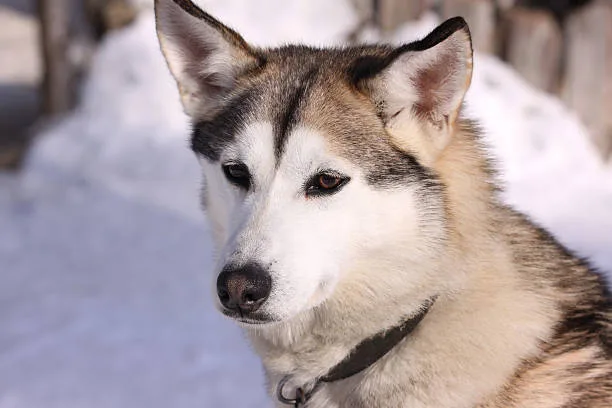
Living Conditions
Siberian Husky facts and info:Siberian Huskies are known for their endurance and adaptability, making them well-suited for various living conditions. These active and energetic dogs thrive in environments that allow them plenty of space to roam and explore.
Whether in a spacious suburban home with a large yard or a rural setting with room to run, Siberian Huskies require ample room for physical activity to keep them mentally and physically stimulated. Apartment living can be challenging for Huskies due to their high energy levels, but it is possible with dedicated, frequent exercise and outdoor activities.
When considering living conditions for a Siberian Husky, it’s important to create a safe and secure outdoor space, as they are known for their escaping tendencies. Additionally, providing a comfortable indoor environment with access to cool areas during warm weather is crucial to ensure their well-being.
Ultimately, a living space that offers both physical and environmental stimulation is key to meeting the needs of Siberian Huskies and ensuring their overall happiness and contentment.
Additionally, it’s important to consider the climate when providing living conditions for Siberian Huskies. Their thick double coat makes them well-equipped to handle cold temperatures, but they may struggle in excessively hot weather.
Providing adequate shade, hydration, and cooling options during warmer months is essential to prevent heat-related issues. Furthermore, paying attention to their need for social interaction and mental stimulation within the living environment is crucial for their well-being.
Regular exercise, interactive play, and companionship are vital aspects of their living conditions that contribute to their overall happiness and fulfillment.
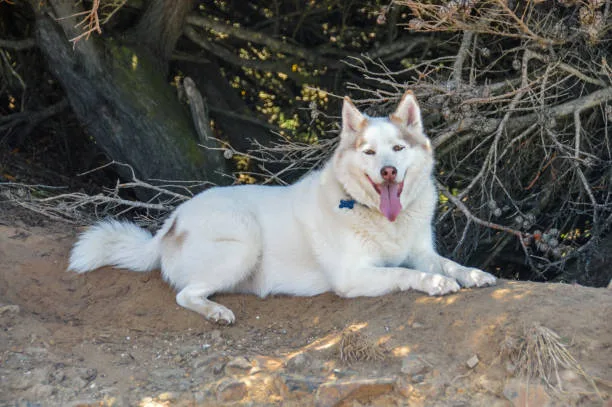
Building a Bond with a Siberian Husky
To build a strong bond with your Siberian husky, it’s important to engage in various activities together. Regular exercise, such as daily walks or jogs, not only helps in maintaining their physical health but also provides an opportunity for bonding.
Additionally, incorporating interactive play sessions, like fetch or agility training, can strengthen the emotional connection between you and your husky. Furthermore, consistent training routines, focusing on positive reinforcement and rewards, will not only stimulate their intelligent mind but also enhance the mutual trust and respect in your relationship.
Moreover, maintaining a predictable and structured care routine, including feeding, grooming, and regular vet visits, instills a sense of security and reliability in your husky, further solidifying the bond between you both.
It’s essential to provide your Siberian husky with mental stimulation through engaging activities such as puzzle toys or obedience training. This not only fosters their intelligence but also nurtures a sense of accomplishment and fulfillment, strengthening the bond with you as their companion.

Husky Diet and Nutrition Essentials
Siberian Husky diet and nutrition are essential for their overall health and well-being. High-quality ingredients are crucial for meeting their dietary needs.
Hence, it’s imperative to select dog food that contains a balanced combination of proteins, fats, and carbohydrates. This mix should be tailored to suit their high energy levels, promoting their robust physical condition.
Additionally, portion control plays a significant role in preventing obesity, ensuring that Huskies maintain a healthy weight. It’s essential to consider age-specific dietary requirements, such as those for puppies, adults, and senior dogs.
Tailoring the diet to meet their specific nutritional needs at different stages of life is key to ensuring their long-term health and vitality.
It’s crucial to provide high-quality ingredients in a balanced combination of proteins, fats, and carbohydrates.
Portion control plays a significant role in preventing obesity and maintaining a healthy weight.
Considering age-specific dietary requirements is essential for meeting the nutritional needs of puppies, adults, and senior dogs.
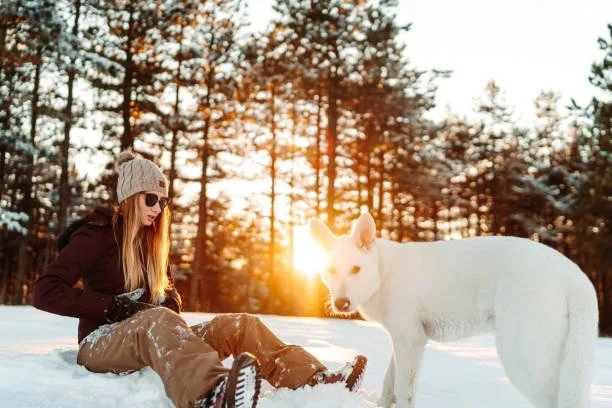
Mastering Husky Training and Socialization Techniques
Training and socializing Siberian Huskies require specific techniques tailored to their intelligent and independent nature. Positive reinforcement is crucial in their training, as they respond well to rewards and praise.
Consistency is key, as Siberian Huskies thrive on routine and clear expectations. Patience is essential, as they may display some stubbornness at times.
Early socialization is vital for Siberian Huskies to ensure they grow into well-adjusted and obedient adults, comfortable around both people and other animals. Introducing them to various experiences and environments from a young age helps prevent behavioral issues later in life.
Building a strong foundation through positive training methods and early socialization sets the stage for a happy and well-behaved Siberian Husky.
Siberian husky facts and info demonstrate that positive reinforcement, consistency, patience, and early socialization are crucial for effective training and socialization of these intelligent and independent dogs.
The use of rewards and praise, along with a consistent routine, helps in shaping their behavior. Early exposure to different experiences and interactions ensures that they grow into well-adjusted and obedient adults.

Understanding and Addressing Husky Health and Wellness
Siberian Husky facts and info reveal that this breed is generally healthy, with a typical lifespan of 12 to 15 years. However, it’s important to be aware of potential health issues that they may face.
Hip dysplasia is a common concern for Siberian Huskies, a condition where the thighbone doesn’t fit snugly into the hip joint. This can lead to discomfort, lameness, and arthritis.
Regular veterinary check-ups are crucial for early detection of hip dysplasia, as well as other potential health issues. Additionally, eye conditions such as cataracts and progressive retinal atrophy can occur in Siberian Huskies, potentially leading to vision impairment.
Responsible ownership includes scheduling regular visits to the veterinarian to monitor and address any health concerns. Vaccinations play a key role in preventing various diseases, and spaying or neutering can contribute to the overall well-being of the Husky by reducing the risk of certain cancers and reproductive-related health issues.
Siberian Husky facts and info emphasize the need for proactive measures to ensure the health and wellness of these captivating dogs.
Regular veterinary check-ups, vaccinations, and responsible decisions concerning spaying or neutering are essential components of their overall well-being and longevity.
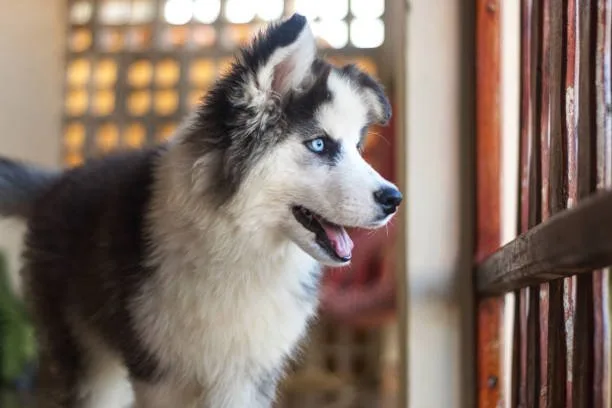
Seasonal Care for Siberian Huskies: Winter and Summer
Siberian Husky facts and info highlight the breed’s resilience in cold climates, making them well-suited to winter conditions. During winter, it’s crucial to provide adequate shelter from the elements, ensuring that it offers protection from wind and moisture.
Providing extra bedding in their shelter can help keep them warm. Additionally, regular checks for ice forming on paws and fur are essential to prevent discomfort or injury.
Furthermore, ensuring access to unfrozen water is vital for hydration, as Siberian Huskies may consume more water during cold weather. In contrast, when preparing for summer, it’s important to provide ample shade and fresh water to prevent overheating.
Engaging in outdoor activities during cooler parts of the day and avoiding strenuous exercise during peak heat hours is essential. Regular grooming to remove loose fur and prevent overheating, along with monitoring for signs of dehydration, is imperative.
By understanding and addressing seasonal care needs, Siberian Husky owners can ensure their pets remain healthy and comfortable year-round.
Siberian Husky facts and info emphasize the breed’s adaptation to cold climates, requiring specific care during winter. Adequate shelter, extra bedding, and preventing ice formation are key considerations.
Conversely, in summer, providing shade, fresh water, and avoiding strenuous exercise during peak heat hours are essential for preventing overheating and dehydration.
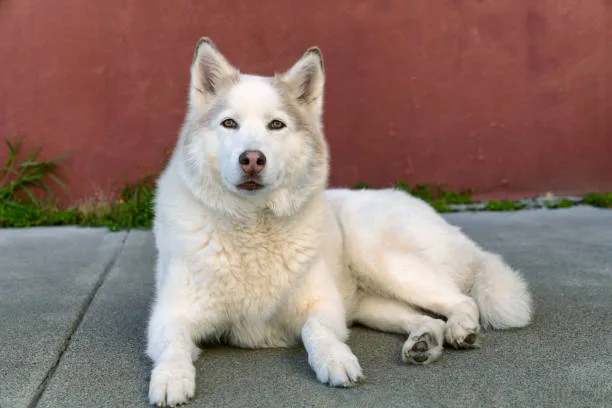
Grooming and Shedding Management for Siberian Huskies
Siberian husky facts and info are essential when it comes to grooming and shedding management for these beautiful dogs. Regular grooming is crucial for Siberian Huskies, especially when they experience their biannual blowout, during which they shed their coat heavily.
To manage shedding, owners should invest in high-quality grooming tools, including a slicker brush and an undercoat rake to remove loose fur effectively. Grooming gloves can also be beneficial for removing loose hair while providing a calming massage for the dog. Coat care is essential for Siberian Huskies to maintain their insulation properties and skin health.
Bathing should be done sparingly to preserve the natural oils in their double coat, using a mild dog shampoo. Additionally, regular brushing helps distribute the natural oils and prevents matting.
In colder months, a moisturizing spray can be used to prevent dry skin, while in warmer months, extra care should be taken to protect their skin from sunburn. By paying attention to grooming and shedding management, owners can ensure that their Siberian Huskies have healthy, lustrous coats and overall well-being..
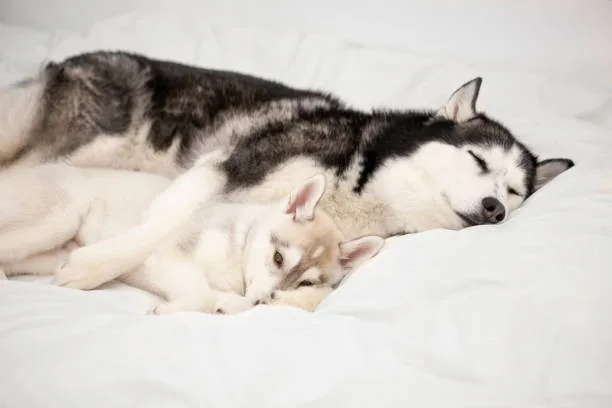
Concluding Thoughts on Husky Care
Owning a Siberian Husky entails a significant commitment to their care, but the rewards are immeasurable. The unique needs of Siberian Huskies, both in terms of physical activity and social interaction, require dedicated attention and effort.
Providing them with proper exercise, training, and affection fosters a strong bond and enriches the experience of having a Siberian Husky as a lifelong companion. It’s important to remember that Siberian Huskies thrive in an environment where their specific needs are met, and as their caretakers, it is our responsibility to ensure their well-being.
The joy and fulfillment of having a Siberian Husky as a part of the family are unparalleled, making the commitment to their care a deeply rewarding experience.
Conclusively, the care of Siberian Huskies demands dedication and understanding of their unique requirements, but the joy and fulfillment they bring as loyal companions make it a deeply rewarding experience for the committed caretaker.

Leave a Reply